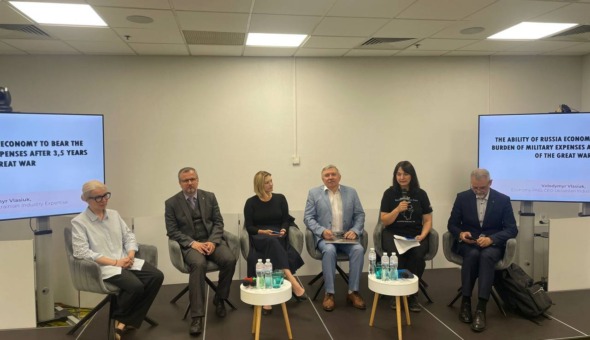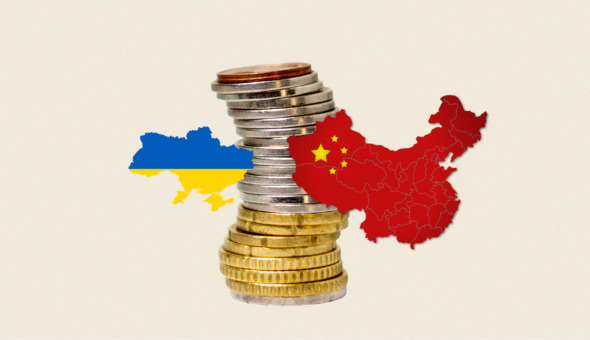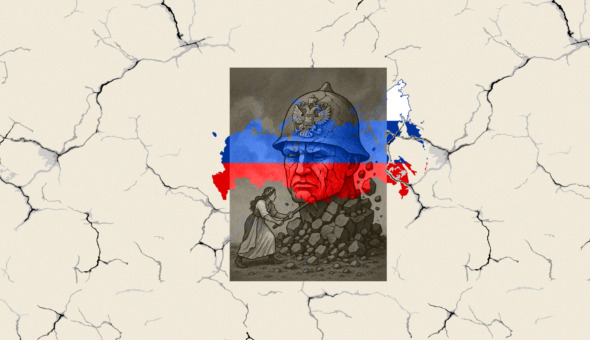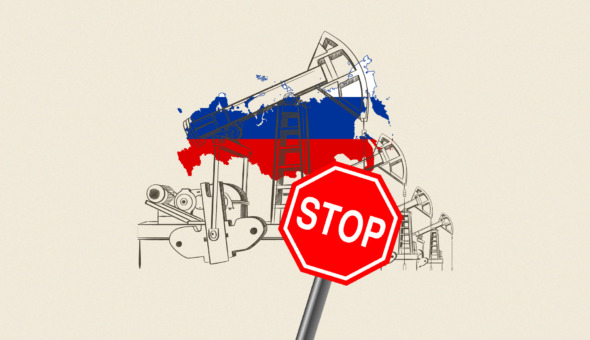
During the constituent meeting, participants discussed models and practices for the protection, preservation and sustainable management of cultural heritage in the context of war and in the context of Ukraine’s European integration, models of interaction between civil society organisations, development of public sector capacity in heritage preservation, advocacy for heritage preservation and dissemination of these practices at the local, national and international levels, and the development of post-war recovery policies.
Kateryna Chuieva, an expert of the Cultural Heritage Protection Network project, highlighted the importance of developing the existing network ANTS is working on. She emphasised that the network brings together different people — from representatives of political forces to activists and experts in heritage and environmental protection — and noted the need to join forces to protect cultural and natural heritage:
‘It is crucial for us to engage new people, those who are less visible, those who may have been less active in the last two years or have not previously been involved in national or international cooperation. I believe that the formation of a sustainable active network can be one of the most important results of our project. I hope that the Cultural Heritage Protection Network platform will be a useful tool both today and in the future to form various horizontal links among different fields. Our network will be strengthened by the efforts of each of us and will benefit various organisations and communities. We plan to actively experiment with the format over the next few months and hopefully succeed.’
Ms Chuieva presented the results of the survey “What will make us stronger” conducted by the project team among cultural heritage organisations. The full text is available here. Of note, more than 60% of respondents expressed a desire to join the network, which demonstrates the high interest and need for such initiatives.
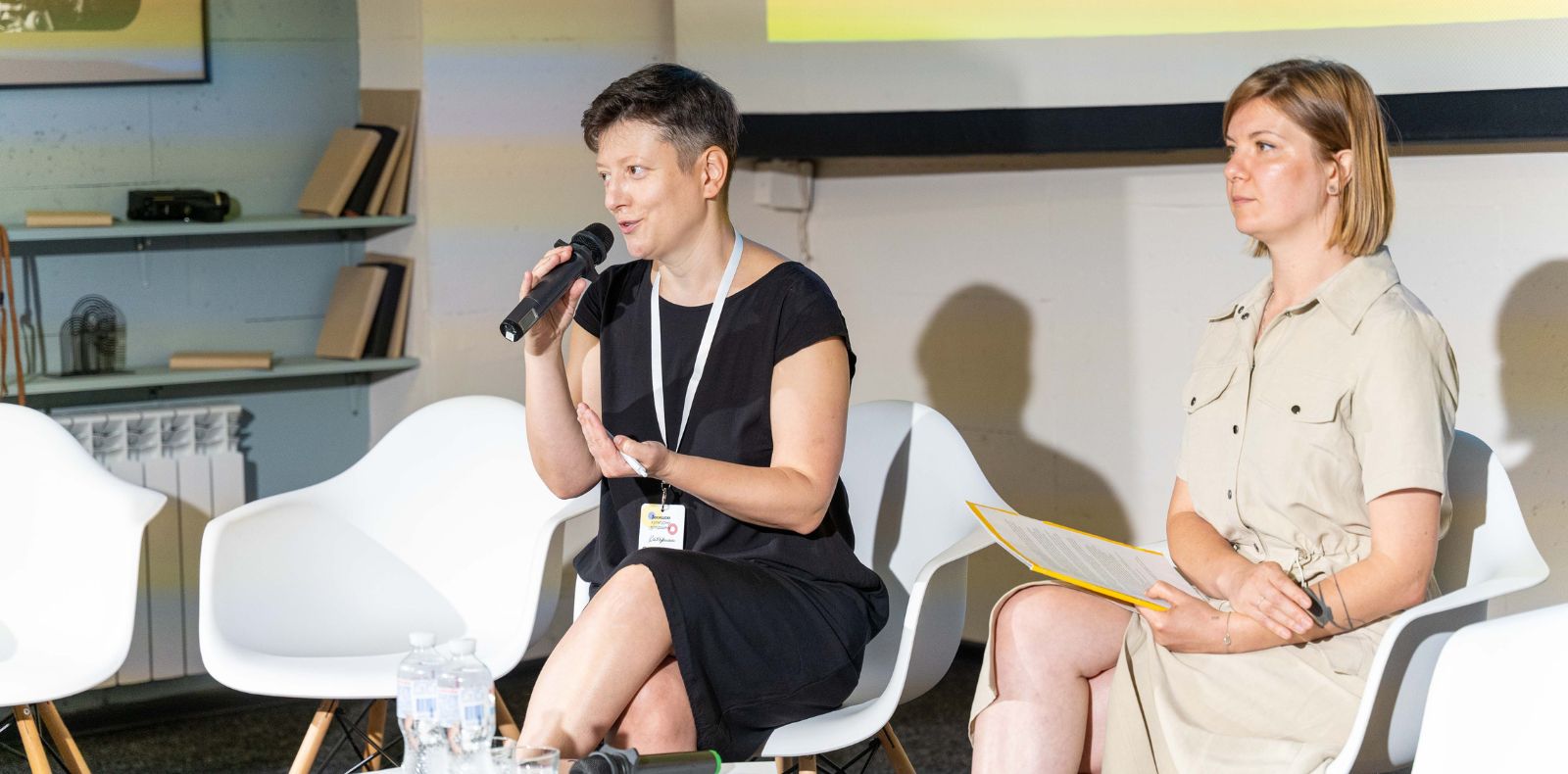
In her welcoming remarks to the participants, Olena Ageieva, a culture and arts specialist with USAID/ENGAGE, said:
“Protecting cultural heritage is a noble cause. We need to unite in small steps in a diverse network. The more monuments and artefacts we preserve and the more content we create around them, the more chances we have for restoration and justice. I would also like to explain the importance of networking and coalitions for us. After the Revolution of Dignity in 2014, coalitions became popular among Ukrainian civil society organisations as a means of promoting synergy and effective advocacy. Our USAID/ENGAGE activity defines a network as a group of organisations or individuals who come together to achieve a common goal, uniting around beliefs, goals, ideas and interests. They act as a rapid response unit with a focus on immediate action. Coalitions in Ukraine have proven to be very effective in influencing the political agenda and generating solutions. It is an efficient advocacy tool that has proven its effectiveness over the past decade, when civil society needs to speak with one voice to prevent reforms from being rolled back and to promote new initiatives.”
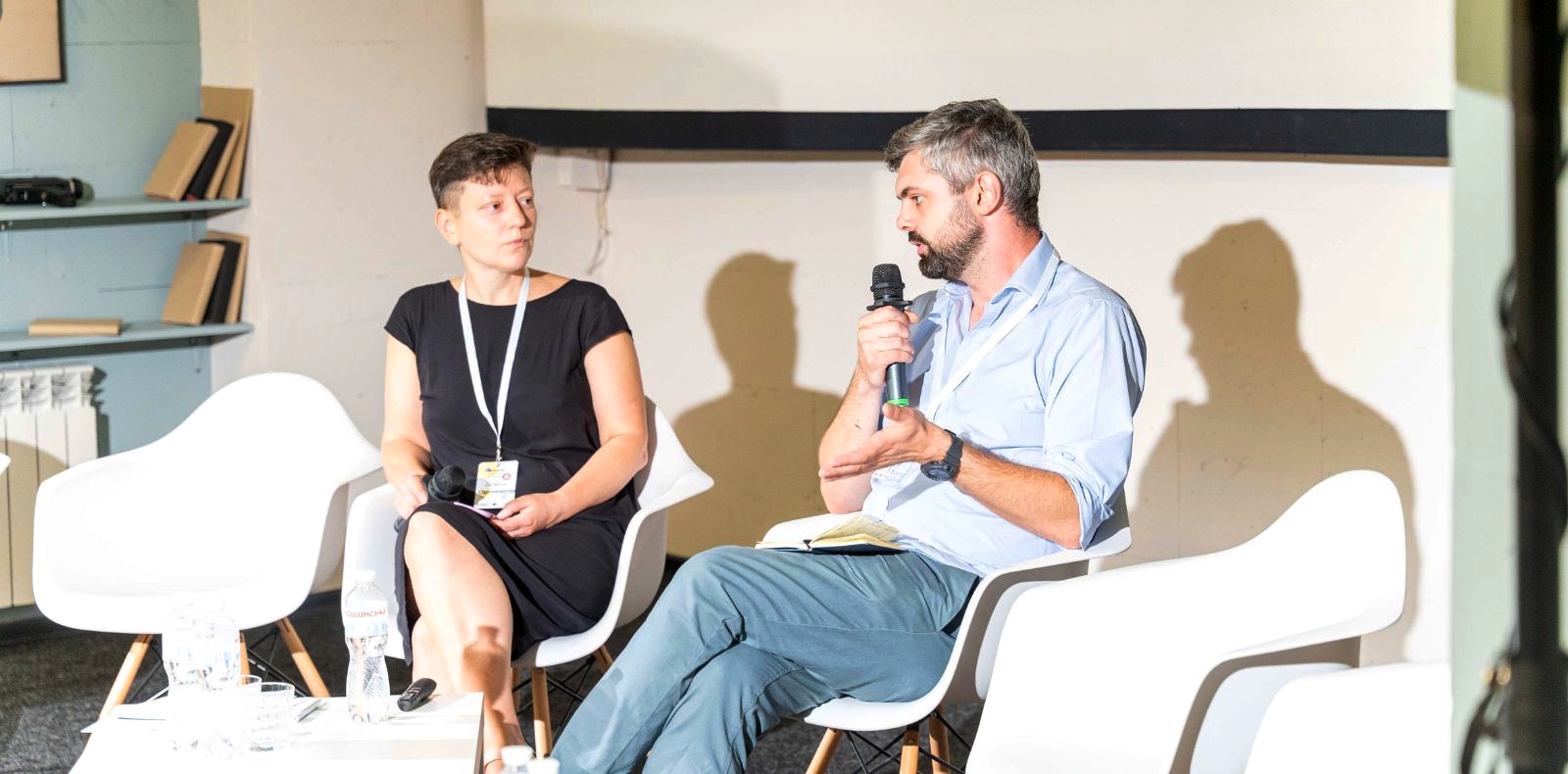
Anton Drobovych, Head of the Ukrainian Institute of National Memory, emphasised the change in the society’s perception of cultural heritage after the start of the russian full-scale invasion. He stressed that the war has made heritage issues a top priority at the international level, being directly related to the identity of the Ukrainian nation:
“Perception has changed since the beginning of the war. We have finally realised the importance of heritage in the context of understanding identity. russia is trying to destroy our cultural heritage — this is part of the neo-imperial scheme. Their goal is to assimilate or destroy Ukrainians. This is a cultural genocide aimed at absorbing the Ukrainian community. In the context of the war, the issue of heritage has become a top priority for international dialogue. Language, culture, education — all this confirms our identity.”
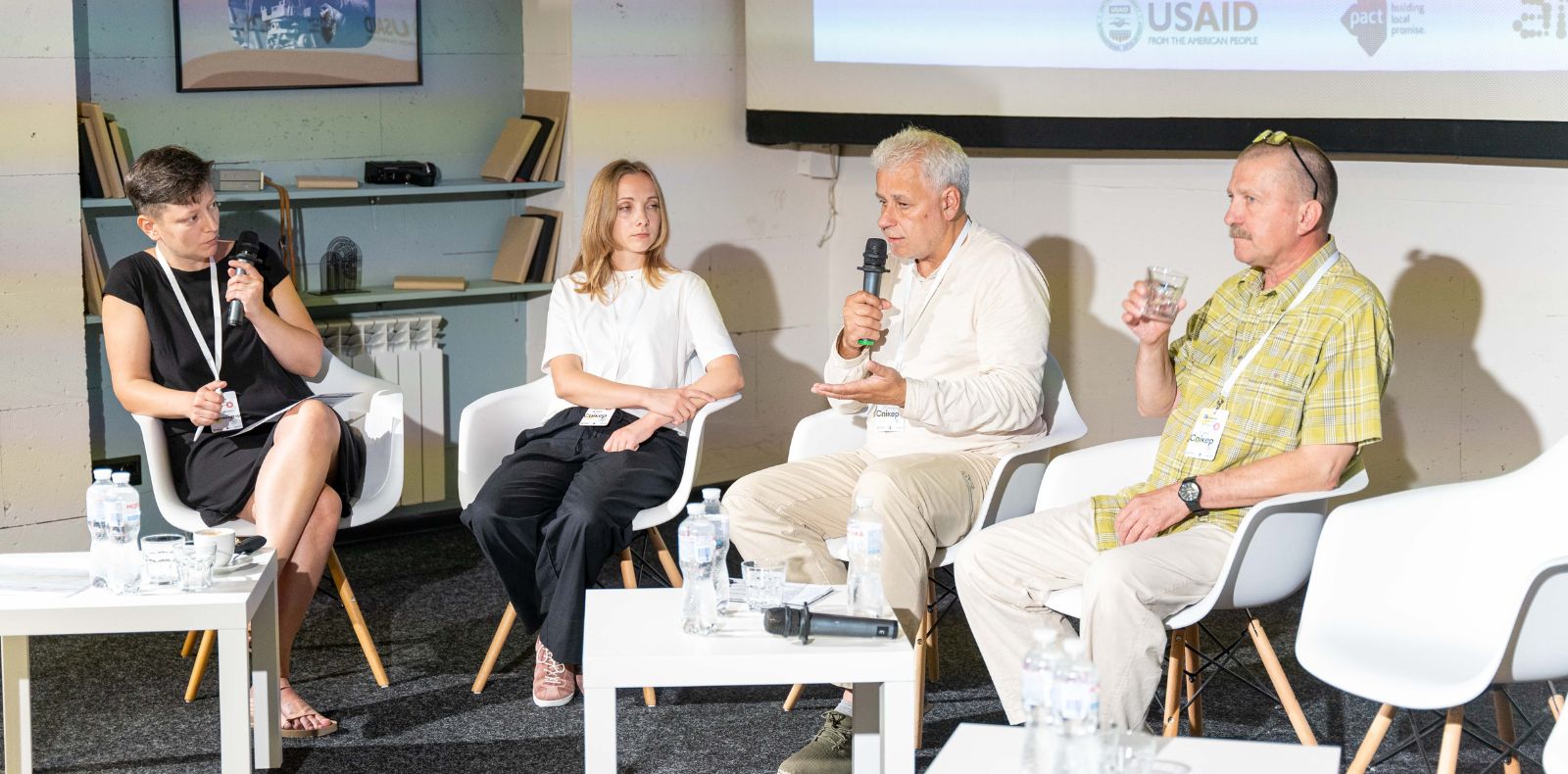
Oleh Lystopad, ANTS environmental protection expert, gave examples of possible cooperation projects within the network that would combine the protection of natural and cultural heritage, in particular, the preservation of burial mounds and ‘holy’ springs and wells:
“When we talk about practical steps to create a network, “holy” springs can be one of the pillars for unification. After all, it is necessary not only to protect the spring itself, as well as the part of the territory where its flow is formed… In Poland, there are more than 240 such springs, and in Ukraine there are twice as many. In the UK, there are 3,000 such springs, and even if some of them have disappeared, they still have historical value. In France, this is also very common. We can build our network on this practical example,” said Oleh Lystopad.
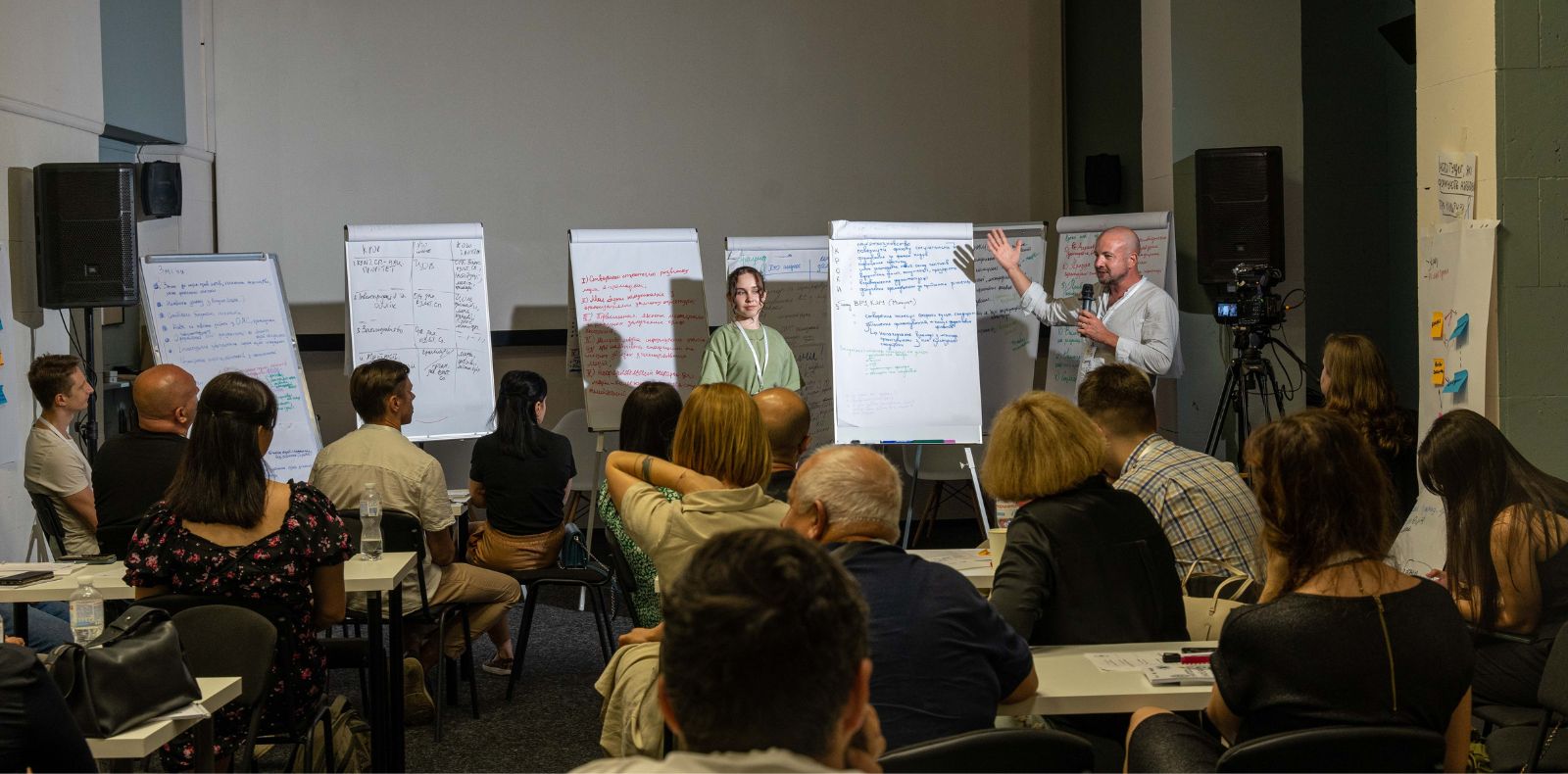
To develop a plan for further action and identify the most pressing issues, the participants of the meeting worked in groups during a facilitated session in the format of “Stakeholder Strategies” (facilitated by Anna Valensa). While working, they underlined the importance of forming new connections between different spheres and organisations, launching a holistic approach to the preservation of cultural and natural heritage in Ukraine, as well as the need to advocate for heritage at all levels and integrate the topic of knowledge and preservation of cultural and natural heritage into the educational process — both at the secondary and higher education levels.
At the moment, the ANTS National Interest Advocacy Network is preparing a report on the results of the strategy, proposals for an action plan based on it, and a founding document of the Cultural Heritage Protection Network for joint discussion and publication. Follow the news on the project page on the ANTS official website.
The event was organised by the team of the National Interest Advocacy Network “ANTS” as part of the USAID/ENGAGE activity, which is funded by the United States Agency for International Development (USAID) and implemented by Pact in Ukraine. The contents of this event are the sole responsibility of Pact and its partners and do not necessarily reflect the views of USAID or the United States Government.
